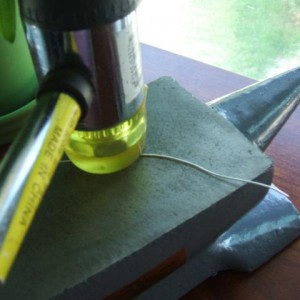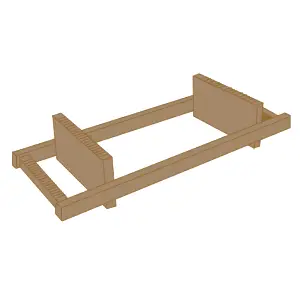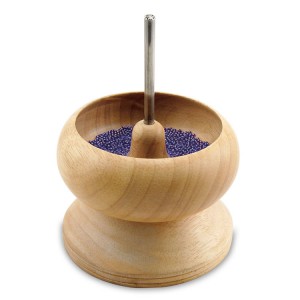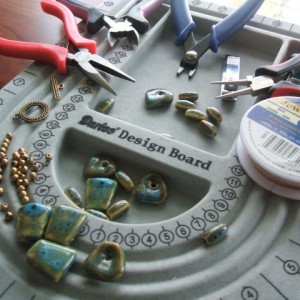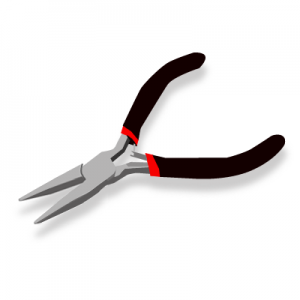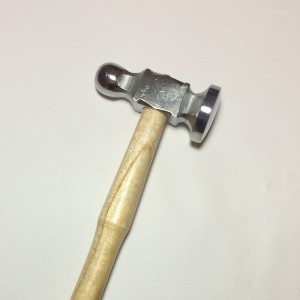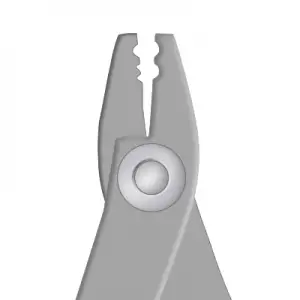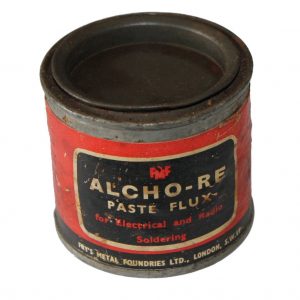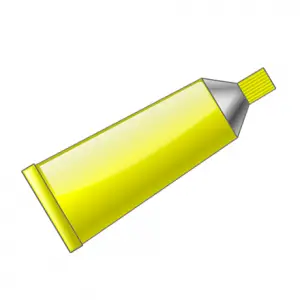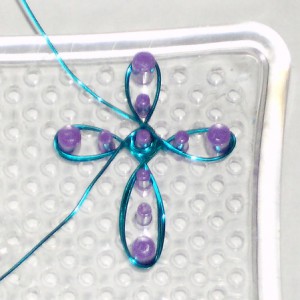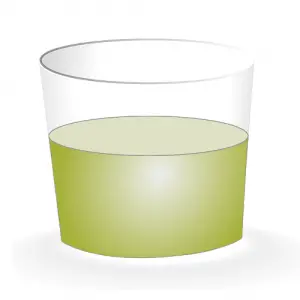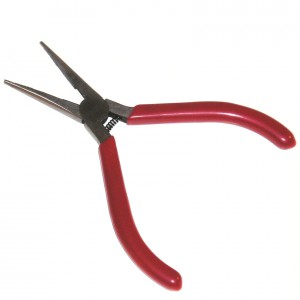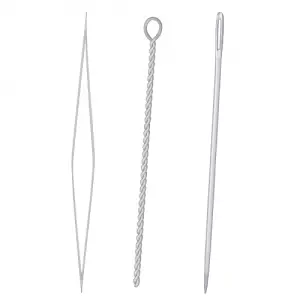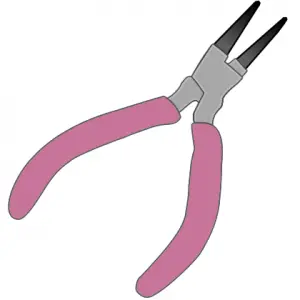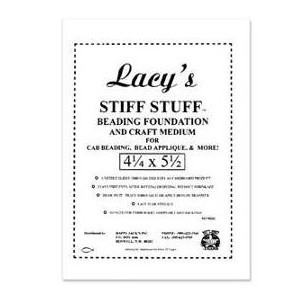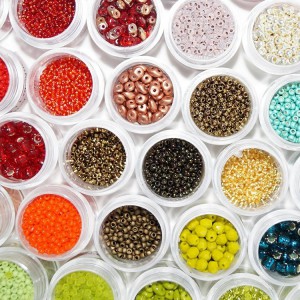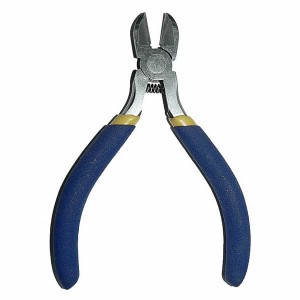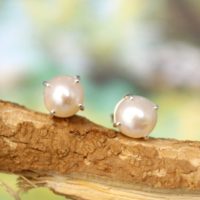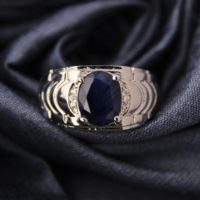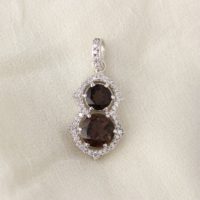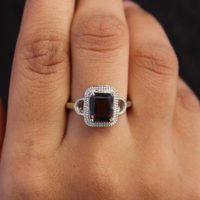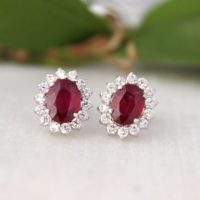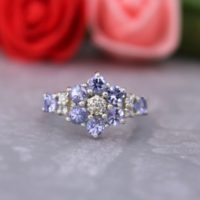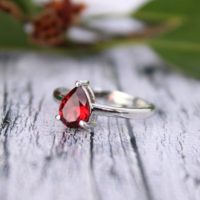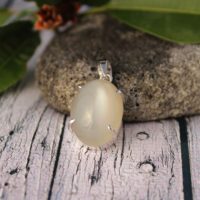Jewelry Making Tools
Anvil
Hammered wire jewelry is made with a jeweler’s hammer (called a chasing hammer) and a small jeweler’s anvil.
Bead Loom
A bead loom is similar to a regular fabric loom, except with beads strung on the weft (the thread that passes over and under the warp threads). Typically one bead is positioned between each warp thread, and then the weft is threaded around the final warp and back through the beads to secure them in place. Loomwork is a beadweaving technique that uses a bead loom.
Bead Spinner
A bowl with a central spindle that makes it easier and faster to string strands of seed beads or liquid silver. A curved beading needle is placed in the beads in the bowl and threads them as you spin the bowl. Buy Spin-N-Bead
Chain Nose Pliers
Chain-nows pliers are rounded on the outside but have flat inside edges. They are good for gripping wire or a jump ring, as opposed to round-nose pliers, which are better for making loops.
Chasing Hammer
A light hammer with a large, slightly rounded striking area. Used for hardening wire or creating a hammered wire look.
Crimping Pliers
Specialized pliers for squishing crimp beads. Recommended for those who plan to use crimp beads often.
Jig
A board with pegs in it that is useful for bending wire into specific shapes that can be replicated. They can be made out of wood, or configurable metal ones can be purchased. photo credit
Liver of Sulfur
A chemical compound used to give an “antiqued” look or darkened coating or patina to silver and bronze jewelry. An in-depth article can be found here: Liver of Sulfer.
Needle Nose Pliers
Also known as long nose or pinched nose pliers because of their appearance, they often have wire cutters built into them. They’re usually made of steel and have rubber handles you can easily grip. When shopping for pliers, be sure to get jewelry pliers rather than electrical or hardware tools.
Needles
For regular stringing, twisted-wire needles work well as the large eye closes to fit through the beads. For seed beads, use beading needles. These resemble sewing needles but are usually longer and thinner. The larger the number, the thinner the needle (to match sizes of seed beads).
Round Nose Pliers
Pliers with round ends that are good for making loops. Along with chain nose pliers and wire cutters, these make up your basic wirework toolkit.
Stiff Stuff
Stiff Stuff is A brand name interfacing made by Lacy’s, useful as a beading foundation for bead embroidery. Stiff Stuff can be dyed or colored with fabric markers to match your piece so the background is less noticeable.
Storage Containers
Beads can be stored in any small container that seals securely. The best storage systems let you view many of your beads at once, and easily remove beads without spilling them. Learn about Organizing Your Beads and Supplies.
Wire Cutters
A tool used to cut metal wire or beading wire. Diagonal wire cutters should cut flush. Be sure to buy yours at a craft or bead shop: hardware store cutters and pliers are usually too large and imprecise for jewelry making.
